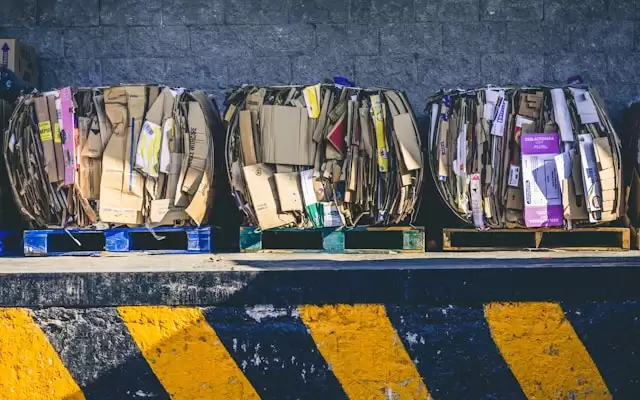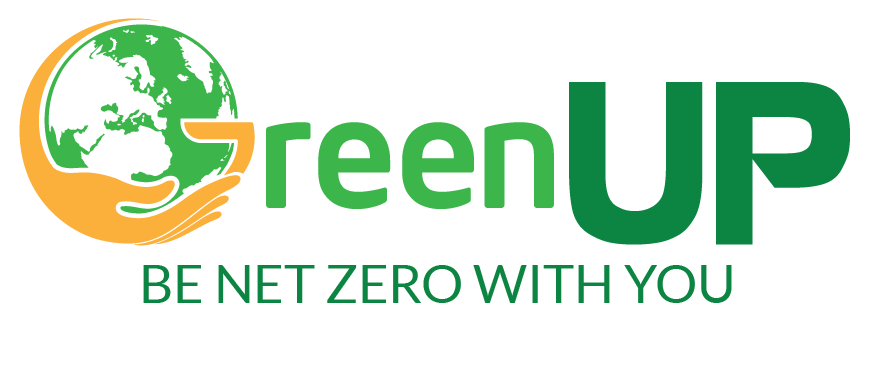In recent years, Vietnam has made significant strides in addressing its growing waste management challenges. One of the most promising initiatives is the implementation of the Extended Producer Responsibility (EPR) policy. This policy aims to hold producers accountable for the entire lifecycle of their products, from production to disposal. As Vietnam continues to develop, understanding EPR and its implications is crucial for consumers, businesses, and the environment.
What is Extended Producer Responsibility (EPR)?
Extended Producer Responsibility (EPR) is an environmental policy approach that places the responsibility for waste management on the producers of products. This means that manufacturers must not only focus on the production and sale of their goods but also take responsibility for their disposal and recycling. The EPR framework encourages companies to design products that are easier to reuse, recycle, or dispose of sustainably.
EPR policies can cover various product categories, including packaging, electronics, and hazardous materials. By shifting the financial and physical responsibility of waste management from local governments to producers, EPR promotes sustainable practices and reduces the environmental impact of waste.
The Need for EPR in Vietnam
Vietnam faces a growing waste crisis, exacerbated by rapid urbanization, population growth, and economic development. The country generates approximately 17 million tons of solid waste annually, with an expected increase of 8-10% each year. Much of this waste ends up in landfills, leading to environmental degradation, pollution, and public health concerns.
The EPR policy is essential in addressing these challenges. It aims to reduce waste generation, promote recycling, and enhance the overall sustainability of the production and consumption system in Vietnam. By implementing EPR, the Vietnamese government hopes to create a circular economy, where resources are reused and recycled, minimizing waste and conserving natural resources.

Key Components of Vietnam’s EPR Policy
Vietnam’s Extended Producer Responsibility (EPR) policy, established through Decree No. 08/2022/ND-CP and effective from January 1, 2024, aims to shift the responsibility for waste management from local governments and taxpayers to producers and importers. This initiative is part of the country’s broader strategy to enhance environmental sustainability and promote a circular economy by increasing recycling rates and reducing waste. The policy outlines several product categories subject to EPR obligations:
- Packaging materials
- Batteries and accumulators
- Electric and electronic devices
- Tires
- Lubricants
- Transportation vehicles
1. Product Categories Under EPR
The EPR policy applies to various product categories, including:
- Packaging: Manufacturers of packaging materials are required to take responsibility for the end-of-life management of their products.
- Electronics: Producers of electronic devices must ensure proper disposal and recycling of their products once they reach the end of their useful life.
- Hazardous Materials: Companies that produce hazardous substances must implement measures for safe disposal and management.
2. Collection and Recycling Targets
The policy sets specific targets for the collection and recycling of waste generated by these product categories. For example, packaging producers may be required to collect and recycle a certain percentage of the packaging waste they generate. This ensures that manufacturers have a vested interest in creating sustainable products and encourages investment in recycling infrastructure.
3. Financial Contributions
Producers are also required to contribute financially to waste management systems. This can include funding recycling programs, supporting waste collection initiatives, and investing in new technologies that enhance recycling capabilities. By contributing financially, producers help alleviate the burden on local governments and communities.
4. Public Awareness and Education
Raising public awareness about EPR and its benefits is crucial for the policy’s success. The Vietnamese government, along with various stakeholders, is working to educate consumers about the importance of responsible consumption and disposal practices. Increased awareness can lead to higher participation rates in recycling programs and a greater demand for sustainable products.
Benefits of EPR in Vietnam
The implementation of EPR in Vietnam offers numerous benefits:
1. Environmental Protection
By encouraging producers to take responsibility for their products, EPR can significantly reduce waste generation and promote recycling. This leads to less pollution, less reliance on landfills, and improved overall environmental quality.
2. Economic Opportunities
EPR can stimulate economic growth by creating new job opportunities in the recycling and waste management sectors. As companies invest in sustainable practices, they may also develop innovative products and services that contribute to a greener economy.
3. Consumer Engagement
EPR promotes consumer awareness and engagement in waste management efforts. As individuals become more informed about the environmental impact of their purchases, they may be more inclined to support businesses that prioritize sustainability.
4. Sustainable Business Practices
The EPR policy encourages businesses to adopt sustainable practices throughout their supply chains. By focusing on product design and lifecycle management, companies can reduce their environmental footprint and improve their competitiveness in the market.
Challenges of Implementing EPR in Vietnam
While the EPR policy presents many opportunities, several challenges must be addressed for successful implementation:
1. Lack of Infrastructure
Vietnam’s waste management infrastructure is still developing, and there is a need for significant investment in recycling facilities and waste collection systems. Without adequate infrastructure, the effectiveness of the EPR policy may be limited.
2. Public Participation
Engaging the public in recycling and waste management efforts is critical for EPR’s success. However, many consumers may lack awareness of their responsibilities or the benefits of participating in recycling programs. Ongoing education and outreach efforts are essential to foster public involvement.
3. Compliance and Enforcement
Ensuring compliance with EPR regulations can be challenging, especially for small and medium-sized enterprises (SMEs). The government must establish effective enforcement mechanisms to ensure that all producers adhere to the policy.
4. Monitoring and Reporting
Establishing a robust monitoring and reporting system is essential for evaluating the effectiveness of the EPR policy. The government must track progress towards collection and recycling targets and assess the overall impact on waste reduction.
The Future of EPR in Vietnam
As Vietnam continues to develop its EPR policy, collaboration among stakeholders will be vital. The government, businesses, non-governmental organizations, and consumers must work together to create a sustainable waste management system. This collaboration will not only enhance the effectiveness of EPR but also promote a culture of sustainability throughout the country.
Vietnam’s EPR policy is a significant step towards a more sustainable future. By holding producers accountable for their products and encouraging responsible consumption, the country can address its waste management challenges while protecting the environment. As consumers become more aware of their role in this system, they can contribute to a cleaner, greener Vietnam.
Conclusion
Vietnam’s Extended Producer Responsibility policy represents a transformative approach to waste management. By shifting the responsibility from local governments to producers, the country aims to create a sustainable framework that benefits the environment, economy, and society as a whole. While challenges remain, the commitment to EPR demonstrates Vietnam’s dedication to building a more sustainable future. As we embrace this new policy, it is essential for all stakeholders to play their part in fostering a culture of responsibility and sustainability. Together, we can pave the way for a cleaner, greener Vietnam.
References
- ChemLinked, 2024. Vietnam extended producer responsibility (EPR) regulations. [online] Available at: https://sustainability.chemlinked.com/greenpedia/vietnam-extended-producer-responsibility-epr-regulations.
- Depocen, 2024. Policy discussion 06-2024: Analysis of extended producer responsibility policy in Vietnam. [online] Available at: https://depocen.org/en/publications/policy-discussion-06-2024-analysis-of-extended-producer-responsibility-policy-in-vietnam/.
- Eurofins, 2024. Vietnam introduces new extended producer responsibility regime. [online] Available at: https://www.eurofins.vn/en/consumer-product-testing/news/vietnam-introduces-new-extended-producer-responsibility-regime/.
- LinkedIn, 2024. Vietnam policy updates: Extended producer responsibility. [online] Available at: https://www.linkedin.com/pulse/vietnam-policy-updates-extended-producer.
- Viet Nam News, 2024. Benefits of EPR and how your business can thrive. [online] Available at: https://vietnamnews.vn/economy/1653276/benefits-of-epr-and-how-your-business-can-thrive.html.
- Vietnam Law & Legal Forum, 2024. Breakthrough policies look towards green economy. [online] Available at: https://vietnamlawmagazine.vn/breakthrough-policies-look-towards-green-economy-71482.html.
- VnEconomy, 2024. Vietnam’s extended producer responsibility: Potential and pitfalls on the road to a circular economy. [online] Available at: https://vneconomy.vn/vietnams-extended-producer-responsibility-potential-and-pitfalls-on-the-road-to-a-circular-economy.htm.
- WWF, 2021. Policy brief: Extended producer responsibility (EPR) in Vietnam. [online] Available at: https://wwfint.awsassets.panda.org/downloads/20210318_policy_brief_epr_vietnam_eng.pdf.
About GreenUP
Pioneering the Green Transition with Expertise and Innovation. With over 10 million I-RECs issued since 2019, we are Vietnam’s leaders in renewable energy certification. Our comprehensive suite of services, positions us uniquely as a one-stop solution for all your green and ESG needs. Experience unparalleled market access, competitive pricing, and strategic partnerships that drive not only cost savings but also significant value to your sustainability goals.







